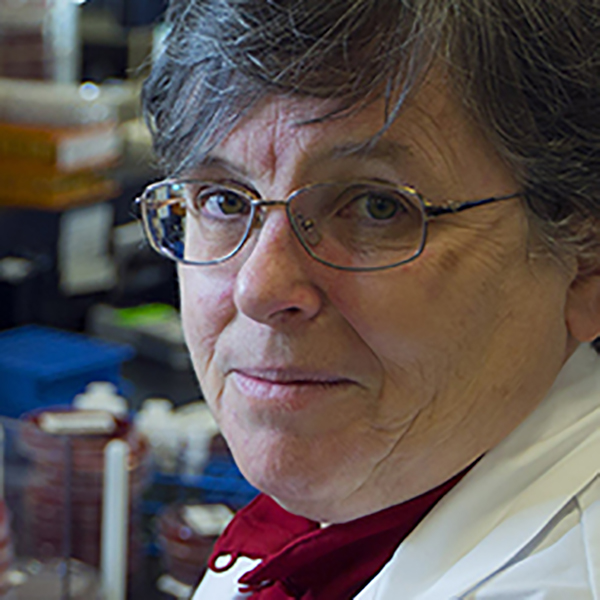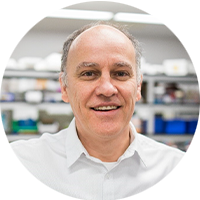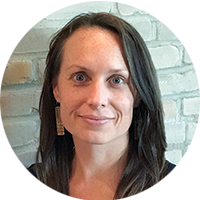Healthcare Workers Studies

COVID-19 testing of health professional students, residents, and Faculty of Health Sciences graduate students: Informing testing and public policy for universities and society
Anne Ellis, Queen’s University
This study looks at the antibody levels of students from the Faculty of Health Sciences at Queen’s University who train and work at the Kingston Health Sciences Centre. Researchers will focus on students who have no symptoms to determine the prevalence of asymptomatic SARS-CoV-2 infection among this group.
Research summary Results Study website View study on 




COVID-19 experience in Canadian dental schools
Paul Allison and Walter Siqueira, McGill University
This research uses saliva testing to determine infection rates, transmission risks and immune system responses for people working in clinical and academic dental school settings.
Research summary Results Study website View study on 

Immunogenicity of current SARS-CoV-2 vaccine schedules in BC and Ontario
Pascal Lavoie, University of British Columbia
This study is looking at the level of protection people have after a first dose of the COVID-19 vaccine and after a second dose with an extended dosing schedule. Researchers are also determining why some people do not develop adequate protection (non-responders) even when receiving vaccines on a recommended schedule.
Research summary Results Study website View study on 

REinfection in COVID19 Estimation of Risk (RECOVER)_Phase 2/Vaccine
Caroline Quach-Thanh, Centre hospitalier universitaire Sainte-Justine
The phase 3 clinical trials of the Pfizer-BioNTech and Moderna vaccines did not include participants with prior SARS-CoV-2 laboratory-confirmed infections. Using a cohort of healthcare workers, this study aims to understand how people who have had a SARS-CoV-2 infection respond to COVID-19 vaccines over 18 months.
Research summary Results Study website View study on 

REinfection in COVid-19 Estimation of Risk (RECOVER)
Caroline Quach-Thanh, Centre hospitalier universitaire Sainte-Justine
This study aims to estimate the risk of reinfection with SARS-CoV-2 in healthcare workers who have already been infected. Over a 12-month period, researchers are studying antibody response and levels in asymptomatic and symptomatic participants with confirmed COVID-19 reinfection.
Research summary Results Study website View study on 




The Canadian COVID-19 Cohort Study for people working in hospitals (Are healthcare workers at higher risk of COVID-19 than other working adults? )
Brenda Coleman and Allison McGeer, Sinai Health System
The Canadian COVID-19 Cohort Study (CCCS) follows 2,000 health care workers from Halifax, Sherbrooke, Ottawa, Toronto, Hamilton, Calgary, and Edmonton. The study will identify occupational risks, determine the incidence of SARS-CoV-2 infection, study the uptake and effectiveness of vaccines and, assess the psychological impact of working in a hospital during a pandemic.
Research summary Results Study website View study on 

COVID-19 Occupational Risks, Seroprevalence and Immunity among Paramedics in Canada (CORSIP Canada)
Brian Grunau, University of British Columbia
The study aims to follow 5,000 paramedics from British Columbia and Ontario to examine COVID-19 risk factors, infection, and immunity; this includes paramedics who have already been vaccinated.
Research summary Results Study website View study on 

Development of high throughput, inexpensive and scalable testing to detect SARS-CoV-2 antibodies using home blood collection kits and a fully automated ELISA antibody assay
Keith Jarvi, Sinai Health System
This study is using a group of healthcare workers to develop and validate a home blood collection kit that will be used with a fully automated antibody testing platform.
Research summary Results Study website View study on 

The impact of COVID-19 on the health of physicians, nurses, and other health care workers
Nicola Cherry, University of Alberta
The study follows more than 5,200 health care workers in British Columbia, Alberta, Ontario, and Quebec in order to determine how many have antibodies to SARS-CoV-2 and identify workplace practices that could be improved and made safer. They will also assess the state of their mental health and identify workplace practices as well as family/community supports that could alleviate stress.
Research summary Results Study website View study on 

COVID-19 incidence rates among Canadian dentists as they return to work: a cohort study
Sreenath Arekunnath Madathil, McGill University
This study aims to monitor dental care during the pandemic, including COVID-19 incidence rates among dentists and how these rates vary according to treatments provided and personal protective equipment used.
Research summary Results Study website View study on 
Immunogenicity of current SARS-CoV-2 vaccine schedules in BC and Ontario
Researchers moved at an incredibly fast pace to develop vaccines against the SARS-CoV-2 virus, and within a year of the World Health Organization declaring the pandemic, nearly 200 million vaccine doses had been distributed worldwide. The global demand for vaccines, however, meant that some countries, including Canada, opted to extend the time between doses beyond vaccine manufacturers’ recommendations. Our study, called Immunogenicity of current SARS-CoV-2 vaccine schedules currently used in Canada, is looking at the level of protection people have after a first dose of the COVID-19 vaccine and after a second dose with this extended dosing schedule. We are also determining why some people do not develop adequate protection (non-responders) even when receiving all vaccine doses on a recommended schedule.
Our study includes a group of healthcare workers in British Columbia and also builds on data being collected in two other CITF-funded studies: one which follows paramedics in British Columbia and Ontario (CORSIP), the other which follows teachers in British Columbia (BCCHR Tracking COVID-19 for Safer Schools). We are comparing the immune response and protection resulting from different vaccine schedules by measuring people’s antibody levels at two and four weeks after each vaccine dose, as well as six months post-first dose and two months post-second dose.
We are also determining if a person’s pre-existing T cells or antibodies against SARS-CoV-2 and other common circulating coronaviruses (cCoVs) have an effect on the COVID-19 immune response after the first, second and third vaccine dose. This will also provide insight into how physical distancing measures may have disrupted the population’s immune protection against other common respiratory infections.
The third objective of our study is to investigate the vaccine immune response in adolescents and children with inflammatory bowel diseases treated with immunosuppressive drugs. We will compare their responses to those of adults, healthy adolescents, and healthy children.
Our study results will help increase our understanding of the factors that contribute to overall vaccine immune response in Canadians and may provide new avenues to improve vaccine efficacy in non-responders.
REinfection in COVID19 Estimation of Risk (RECOVER)_Phase 2/Vaccine
When the study started in June 2021, the phase 3 clinical trials of the Pfizer-BioNTech and Moderna vaccines did not include participants with prior SARS-CoV-2 laboratory-confirmed infections. Therefore, there were no data on vaccine effectiveness for people who had a prior infection. Public health guidelines have recommended vaccinating people regardless of their prior infection status. Our study goal is to understand how people who have had a SARS-CoV-2 infection respond to COVID-19 vaccines.
This study, called REinfection in COVID-19 estimation of risk (RECOVER) – Phase 2/Vaccine, builds on our RECOVER study, which is following a group of nearly 500 healthcare workers (HCW) in Quebec who have had a confirmed SARS-CoV-2 infection. We are estimating the participants’ risk of reinfection and studying the antibody and cell-mediated immune responses and levels in participants who have confirmed reinfection.
In this second phase of our study, we are following a sub-group of the RECOVER participants who get vaccinated, as well as adding a group of HCWs who have not had infection and also get vaccinated. Our aim is to understand and compare the immediate and long-term immune responses following vaccination.
We have also expanded the time frame of the study to follow participants for 18 or 24 months after their vaccine instead of 12 months which allows us to produce longer-term serological and cell-mediated immune response results.
The vaccine surveillance component of the RECOVER study will contribute to our overall findings which will support public health decision-makers in determining best strategies for ongoing pandemic management.
REinfection in COVID19 Estimation of Risk (RECOVER)_Phase 2/Vaccine
Nicola Cherry
Professor, University of Alberta
Physician, University of Alberta Hospital
Contact info
ncherry@ualberta.ca
Key words
Health care workers
Covid-19
Antibodies
Vaccine
Mental health
Exposure
Cohort
Nested case-control
Research interests
Epidemiology
Prevention
Occupational health
The impact of COVID-19 on the health of physicians, nurses, and other health care workers
Our study has enrolled more than 5,200 health care workers in British Columbia, Alberta, Ontario, and Quebec. Participants include physicians in all four provinces, nurses and health care aides in Alberta, and personal support workers in Ontario.
We have three goals:
- Determine how many participants have antibodies to SARS-CoV-2, which suggests they have had a previous infection, and identify workplace practices that could be improved and made safer.
- Understand the impact of prior health conditions on participants’ health during the pandemic.
- Assess the state of participants’ mental health and identify workplace practices, as well as family/community supports, that could alleviate stress.
Our study includes four contacts with each participant: Phase 1, in which they complete an online recruitment interview; phase 2, when they update their exposure and mental health data and give a blood sample for serology; phase 3, when they complete a third exposure and mental health assessment; and phase 4, completing a questionnaire to capture post-pandemic health and work activities.
Our study aims to collect blood samples every three months up to 13 months post-first vaccine to chart changes in antibodies. A final (phase 4) questionnaire would help establish the factors that can contribute to improvement in mental health post-pandemic.
Results: The impact of COVID-19 on the health of physicians, nurses, and other health care workers
Allison McGeer
Professor, University of Toronto
Infectious Disease Consultant, Sinai Health System
Key words
Adult immunization
Epidemiology
long term care
Research interests
My research interests are in the prevention of healthcare associated infection, the use of epidemiology to decrease the burden of infectious diseases, and adult immunization.
Publications
Abe KT, Li Z, Samson R, Samavarchi-Tehrani P, Valcourt EJ, Wood H, et al. A simple protein-based surrogate neutralization assay for SARS-CoV-2. JCI insight. 2020;5(19).
Isho B, Abe KT, Zuo M, Jamal AJ, Rathod B, Wang JH, et al. Persistence of serum and saliva antibody responses to SARS-CoV-2 spike antigens in COVID-19 patients. Science immunology. 2020;5(52).
Kohler PP, Kahlert CR, Sumer J, Flury D, Güsewell S, Leal-Neto OB, et al. Prevalence of SARS-CoV-2 antibodies among Swiss hospital workers: Results of a prospective cohort study. Infection control and hospital epidemiology. 2020:1-5.
Law JC, Koh WH, Budylowski P, Lin J, Yue F, Abe KT, et al. Systematic Examination of Antigen-Specific Recall T Cell Responses to SARS-CoV-2 versus Influenza Virus Reveals a Distinct Inflammatory Profile. Journal of immunology (Baltimore, Md : 1950). 2021;206(1):37-50.
The Canadian COVID-19 Cohort Study for people working in hospitals
Health care workers are at high risk of exposure to SARS-CoV-2, but we lack data on the extent of infection among this population. It is crucial that we look at infection rates and determine what more can be done to protect health care workers, their patients, their families, and their community.
The Canadian COVID-19 Cohort Study (CCCS) has five primary objectives:
- Identify workplace, community, household, and personal risk factors for COVID-19 among hospital employees;
- Assess whether health care workers in certain occupations or locations of work (such as emergency departments or intensive care units) are at higher risk of COVID-19 infection than others;
- Determine the incidence of symptomatic and asymptomatic COVID-19 infection;
- Study the intended and actual uptake of COVID-19 vaccines by health care workers;
- Assess the effectiveness of vaccines against COVID-19; and
- Assess the psychological impact of working in a hospital during a pandemic.
Our study involves the recruitment of more than 2,000 health care workers from Halifax, Sherbrooke, Ottawa, Toronto and area, Hamilton, Calgary, and Edmonton. Antibody tests are performed at 0, 6, and 12 months, as well as prior to and following vaccination against COVID-19 to learn how many have been exposed to COVID-19 as well as their responses to vaccination.
By studying risk factors as well as the protective measures that health care workers are using at work and home, we will determine which factors are most closely associated with infection — and we can make recommendations for the improvement of protective guidelines in the workplace.
Results: The Canadian COVID-19 Cohort Study for people working in hospitals
Brian Grunau
Professor, Department of Emergency Medicine, University of British Columbia
Emergency Physician, St. Paul’s Hospital
Scientist, Centre for Health Evaluation and Outcome Sciences
Contact info
Brian.Grunau@ubc.ca
Research interests
Resuscitation
cardiac arrest
prehospital medical care and guidelines
Publications
https://pubmed.ncbi.nlm.nih.gov/?term=grunau+b%5Bauthor%5D
Studying paramedics’ risk of exposure to COVID-19
Paramedics are essential workers instrumental to helping Canadians get through the pandemic. They are likely at high risk for contracting COVID-19 but little is known about which tasks they perform are associated with a greater risk of exposure. Paramedics treat people who potentially have COVID-19, and their work involves providing care in close proximity and transporting patients in confined spaces often with limited ventilation. They also routinely provide emergency medical treatments, such as CPR for cardiac arrest, which may increase the risk of transmission.
Our study aims to enrol up to 5,000 paramedics from British Columbia, Ontario, Saskatchewan, Alberta, and Manitoba to examine COVID-19 risk factors, infection, vaccination strategies, and immunity. This includes both paramedics who have, and have not, been vaccinated. Participants are providing blood samples four times over the course of two years.
We are using these samples to measure both infection-induced and vaccine-acquired antibodies. Additionally, we are comparing vaccination strategies (including the type of vaccine, intervals between doses, and use of subsequent vaccine doses) with antibody concentrations and neutralizing capabilities against variants of concern (VOCs) and comparing them to the wild type (Wuhan strain). Looking at blood samples from paramedics who test positive, we will examine the longevity of antibodies over the course of the study to provide information on how long antibodies may contribute to a person’s immune response and their neutralization capabilities against VOCs.
Our study is also investigating workplace factors that may increase a paramedic’s exposure to infection with the goal of providing evidence to inform safe work practices. For example, administering certain treatments, like those that generate aerosols, may benefit from specific workplace infection control strategies. By comparing differing practices, we will identify optimal strategies. Once our study is complete, the results will provide evidence to inform workplace health and safety guidelines aimed at protecting paramedics from becoming infected with SARS-CoV-2.
Results: Studying paramedics’ risk of exposure to COVID-19
Keith Jarvi
Professor of Surgery, University of Toronto
Clinician Scientist, Lunenfeld-Tanenbaum Research Institute
Physician, Division of Urology, Sinai Health
Chief, Division of Urology, Mount Sinai Hospital
Key words
COVID-19 antibodies
Rapid testing
COVID-19 immunity
Capillary blood sampling
Research interests
Development of high throughput testing capacity
Duration of COVID-19 immunity following infections and vaccinations
Health Care Worker risks of COVID-19 infection (HealthyHCW study)
Detecting SARS-CoV-2 antibodies using inexpensive home blood collection kits
There is an urgent need for population-wide serologic testing, both to diagnose past SARS-CoV-2 infections (by detecting antibodies in blood) and to determine if immunity to COVID-19 is long-lasting. While healthcare workers are particularly at risk of contracting COVID-19, as front-line caregivers, rates of previous infections are sparsely reported. For this reason, healthcare workers were invited to participate in the study.
Our study is developing and validating a home blood collection kit that will be used with a fully automated antibody testing platform. The aim is to create a “high throughput” (10,000 tests/day in one centre), inexpensive (less than $15/test), accurate, and easy-to-use procedure for SARS-CoV-2 antibody detection.
Our study began with an initial pilot study of 100 volunteers (including a minimum of 25 who have recovered from COVID-19) — to identify home blood collection kits that were convenient to use and that maintained the accuracy of the antibody testing platform, providing the optimum laboratory performance.
We then selected one home blood collection kit for a larger group of 1,500 healthcare workers to test and identify any issues with blood collection or testing. Our goal is to develop an accurate, inexpensive, and easy-to-use antibody test that can be rapidly available to large populations of Canadians.
Our volunteers are performing antibody tests three, six, nine, 12 and 18 months following an initial testing, in addition to a post-vaccination sample for volunteers who get vaccinated. This provides further information on the prevalence of past SARS-CoV-2 infections, the incidence of new infections, if immunity (as indicated by SARS-CoV-2 antibodies) is present and durable, and a measurement of vaccine effectiveness in healthcare workers.
We will also monitor the volunteers on their vaccination status, the effectiveness of the vaccines, their antibody responses, and any new COVID-19 symptoms or infections following vaccination.
Caroline Quach-Thanh
Professor, Dept of Microbiology, infectious diseases and Immunology and Dept of Pediatrics, Université de Montréal
Pediatric Infectious Diseases & Medical Microbiologist, CHU Sainte-Justine
Medical Lead, Infection Prevention & Control, CHU Sainte-Justine
Contact info
c.quach@umontreal.ca
Key words
Vaccines
Epidemiology
Pediatrics
Prevention
Research interests
Vaccine-preventable diseases
Healthcare-associated infections
Infection Prevention
Pediatrics
Public Health
Publications
https://www.ncbi.nlm.nih.gov/myncbi/1H1eawqvwjsczp/bibliography/public/
REinfection in COVid-19 Estimation of Risk (RECOVER)
When this project was funded in June 2021, it was not yet known whether COVID-19 positive patients in whom we detected an immune response would have long-lasting immunity. If an antibody response was not long-lasting or protective against viral shedding (which contributes to person-to-person transmission), then vulnerable patients would remain at risk and individuals who have recovered could become reinfected and a source of infection for others.
Our study aims to estimate the risk of reinfection with SARS-CoV-2 in healthcare workers who have already been infected. Over a 12-month period, we studied antibody responses and levels in asymptomatic and symptomatic participants with a confirmed COVID-19 reinfection.
Our findings will allow public health decision-makers to better determine strategies for pandemic management.
REinfection in COVid-19 Estimation of Risk (RECOVER)
Paul Allison
Professor, Faculty of Dentistry, McGill University
Contact info
Paul.allison@mcgill.ca
Key words
COVID-19
saliva test
dental care
students
Research interests
Public Health
Accessibility to dental care
Epidemiology of oral health problems
Walter Siqueira
Full Professor, College of Dentistry, University of Saskatchewan
Associate Dean Academic, College of Dentistry, University of Saskatchewan
Contact info
walter.siqueira@usask.ca
Key words
Saliva
Proteome
salivary proteins
microbiome
oral biology
biomarker identification
Research interests
Salivary Proteomics Research Laboratory at University of Saskatchewan.
Program in proteomics, diagnostics and therapeutics using saliva (unique in Canada). Research focuses on how saliva and salivary components can be used to improve patient health, both in diagnosis and as therapeutics.
Significant contributions to the field of salivary research and dentistry include an innovative nanoparticle method to deliver and protect salivary proteins against degradation, and consequently prevent oral diseases.
Identification of salivary biomarkers for the early and easy diagnosis of global diseases such as Zika and COVID-19 virus infection.
Publications
Sabino-Silva R, Jardim ACG, Siqueira WL. (2020) Coronavirus COVID-19 impacts to dentistry and potential salivary diagnosis. Clin Oral Investig. 24(4):1619-1621. doi: 10.1007/s00784-020-03248-x.
Isho B, Abe KT, Zuo M, Jamal AJ, Rathod B, Wang JH, Li Z, Chao G, Rojas OL, Bang YM, Pu A, Christie-Holmes N, Gervais C, Ceccarelli D, Samavarchi-Tehrani P, Guvenc F, Budylowski P, Li A, Paterson A, Yue FY, Marin LM*, Caldwell L, Wrana JL, Colwill K, Sicheri F, Mubareka S, Gray-Owen SD, Drews SJ, Siqueira WL, Barrios-Rodiles M, Ostrowski M, Rini JM, Durocher Y, McGeer AJ, Gommerman JL, Gingras AC. (2020) Persistence of serum and saliva antibody responses to SARS-CoV-2 spike antigens in COVID-19 patients. Science Immunol. 5(52):eabe5511. doi: 10.1126/sciimmunol.abe5511
Rosa V, Ho D, Sabino-Silva R, Siqueira WL, Silikas, N. (2021) Fighting viruses with materials science: prospects for antiviral surfaces, drug delivery systems and artificial intelligence. Dental Materials. 37(3):496-507
COVID-19 experience in Canadian dental schools
Throughout the pandemic, dental and dental hygiene students and staff have been among the few groups regularly on-site at Canadian universities. Their on-campus presence combined with the nature of their work puts them at greater risk of being infected with the SARS-CoV-2 virus than the general public. Our research is using saliva testing to determine infection rates, transmission risks and immune system responses for people working in these clinical and academic settings.
Our study is following 600 participants including students, residents, faculty and staff from all dental schools in Canada. We are asking participants to provide saliva samples every month for a year, which we test for active SARS-CoV-2 infections. Saliva is ideal for detecting COVID-19 infections because it is easy to collect and transport. It can be used to test for active infection in patients who don’t show symptoms, and can also be used to measure antibody immune response. Our research will provide useful information about the nature of immunity with samples derived from saliva.
Study participants who test positive for SARS-CoV-2 provide additional saliva samples as well as blood samples. We then perform antibody tests to determine if the participant is showing signs of immunity to the virus. In some participants, we are also measuring their antibody response post-vaccination.
Our study also involves investigating work-related and sociodemographic factors that may determine the risk of being infected. Our work will contribute to infection control protocols in dental schools and possibly more broadly to infection control measures at university and college campuses.
Results: COVID-19 experience in Canadian dental schools
Occupational Group Studies

Measuring the prevalence of COVID-19 among Quebec food workers
Denis Boudreau, Université Laval
This study aims to shed light on how many food industry workers have been exposed to the virus and what their immune responses are.
Research summary Results Study website View study on 

Study of the epidemiology of COVID-19 in teachers and education workers
Brenda Coleman, Sinai Health System
This study aims to better understand the risk of SARS-CoV-2 infection, the impact of variants of concerns and the mental health repercussions for teachers and education workers from across Ontario.
Research summary Results Study website View study on 




Monitoring hotspots for COVID-19 among University of Waterloo students
Brian Dixon and Marc Aucoin, University of Waterloo
This study of students, faculty and staff at the University of Waterloo and other nearby post-secondary institutions aims to demonstrate which groups on a university campus are more at risk for catching SARS-CoV-2, and the factors that increase risk of exposure.
Research summary Results Study website View study on 




Tracking COVID to inform interventions and help make our schools safer
Pascal Lavoie and Louise Mâsse, University of British Columbia
This study is evaluating a group of staff and students in the Vancouver School District to determine how many have previously been infected with COVID-19. Researchers are determining the risk of exposure to the virus in schools, and the effects of the pandemic on participants’ mental health.
Research summary Results Study website View study on 

Research Platform to Screen and Protect Individuals that Work Within a Food Production, Healthcare, Research or Clinical Organization – RESPECT
Amit Oza, University Health Network
Using asymptomatic testing, this study aims to better understand the transmission of SARS-CoV-2 in food industry settings. This study focuses specifically on employees at several food production facilities in the Greater Toronto Area.
Research summary Results Study website View study on 

School personnel and COVID-19: Seroprevalence study in Montréal
Kate Zinszer, Université de Montréal
Building on the research team’s EnCORE study—also funded by CITF—which has been looking at the number of children and adolescents with SARS-CoV-2 infections in schools and daycares in four Montreal neighbourhoods, this second study focuses on staff from the same schools and daycares to determine how many have had SARS-CoV-2.
Research summary Results Study website View study on 
Denis Boudreau
Principal Investigator
Full Professor, Department of Chemistry, Université Laval
Key words
Biosensors
Nanoparticles
Fluorescence
Plasmonics
Research interests
Analytical chemistry
Biosensors
Optical instrumentation
Microfluidics
Nanoscience and nanotechnology
Optical spectroscopy
Publications
Djaileb, A.; Charron, B.; Jodaylami, M. H.; Thibault, V.; Coutu, J.; Stevenson, K.; Forest, S.; Live, L. S.; Boudreau, D.; Pelletier, J.; Masson, J. ChemRxiv 2020, https://doi.org/10.26434/chemrxiv.12118914.v1.
Measuring the prevalence of COVID-19 among Quebec food workers
Food industry employees are deemed essential workers since they support services necessary to the health and well-being of the public. Many food industry staff have been working in front-facing jobs throughout the pandemic and are at higher risk of being exposed to COVID-19 because of their close daily contact with large numbers of people. There are still limited data on how many workers have been exposed to the virus and what their immune responses are, and our study aims to shed light on these issues.
We are following 300 participants over time: people who work in grocery stores, restaurants, and bars in the Capitale-Nationale and Chaudière-Appalaches regions in Quebec, as well as a group of hardware store employees for comparison purposes. Through initial blood tests, we are determining who has COVID-19 immunity, suggesting a previous infection.
We take blood samples again at three and six months to test for those who have become infected or vaccinated over time. Part of our study involves looking for correlations between people’s immune response and the factors that may contribute to severe cases of COVID-19. Initial blood tests are taken pre-vaccination and participants who receive a COVID-19 vaccine during the study continue to be followed. Six researchers—Denis Boudreau, Sylvie Trottier, Caroline Gilbert, Jean-François Masson, Joelle Pelletier and Mariana Baz—from Université de Montréal and Université Laval are involved in the project.”
Results: Measuring the prevalence of COVID-19 among Quebec food workers
Brenda Coleman
Assistant Professor, Dalla Lana School of Public Health, University of Toronto
Adjunct Assistant Professor, Schulich School of Medicine and Dentistry, Western University
Clinical Scientist, Sinai Health, Toronto, ON
Key words
Infectious disease
Epidemiology
Vaccinology
Hospital workers
Influenza
COVID-19
Research methods
Public health
Clinical epidemiology
Research interests
Adult vaccines
Infectious diseases
Antimicrobial resistance, both antiviral and antibiotic.
Reducing the burden of illness due to infectious respiratory illnesses including increasing vaccine acceptance, uptake, and effectiveness.
Publications
http://www.ncbi.nlm.nih.gov/sites/myncbi/collections/public/1liJQsmBpT7L2CLTTSNhpNRkV/?sort=date&direction=descending
Study of the epidemiology of COVID-19 in teachers and education workers
By 2021, many schools in Canada had returned to hybrid or at school teaching to ensure that students would have some opportunities for in-person learning, considered the best option for their education and mental health. At the same time, what’s at stake for education workers in terms of risk of COVID-19 infection and the mental health repercussions connected to it is not fully understood. Our study aims to determine how to protect teachers and other education workers in Ontario from infection.
Our study participants are teachers and education workers from across Ontario. Initially, they provide blood samples and complete a survey about risks they face and various protective measures they have taken during the pandemic. We asked for additional information and blood samples multiple times over a 22-month period. The blood samples allow us to determine how many people were already exposed to the SARS-CoV-2 virus or if they became exposed to it while on the study. For participants who received vaccines, we are looking at whether vaccination induces antibodies to protect from infection, and whether antibody levels change over time. Our testing methods differentiate between antibodies due to prior COVID-19 infection or the result of vaccination. We are also asking participants to answer questionnaires to see what factors are associated with higher levels of distress over the duration of the study.
Our research will contribute to a greater understanding of COVID-19 infection in schools and help develop prevention strategies to support teachers and educational workers’ physical and mental health.
Results: Study of the epidemiology of COVID-19 in teachers and education workers
Brian Dixon
Professor and Canada Research Chair, University of Waterloo
Contact info
bdixon@uwaterloo.ca
Key words
Immunology
Antibody
Assay
disease
Research interests
Development of immune assays
Immune response to disease
Evolution of immunity
Publications
Dijkstra JM, Frenette AP and Dixon B. Most Japanese individuals are genetically predisposed to recognize an immunogenic protein fragment shared between COVID-19 and common cold coronaviruses. F1000Research 2021, 10:196 https://doi.org/10.12688/f1000research.51479.1
Dixon, B., Barreda, D. and Sunyer, O. Perspective on the development and validation of Ab reagents to fish immune proteins for the correct assessment of immune function. Frontiers in Immunology 9: 2957 (2018). DOI: 10.3389/fimmu.2018.02957
Marc Aucoin
Professor, Department of Chemical Engineering, University of Waterloo
Chair, Department of Chemical Engineering, University of Waterloo
Contact info
maucoin@uwaterloo.ca
Key words
antibody production
virus production
vaccine manufacturing
recombinant protein production
Research interests
Control of biological systems
Publications
Walji S-D, Aucoin MG. A critical evaluation of current protocols for self-sterilizing surfaces designed to reduce viral nosocomial infections, American Journal of Infection Control, Volume 48, Issue 10, 2020, Pages 1255-1260
Logan M, Manalil J, Notte C, Kearse C, George S, Zeiser A, Farrell P, Aucoin MG. A flow cytometric granularity assay for the quantification of infectious virus (2019) Vaccine 8;37(47):7090-7099
Meunier SM, Sasges MR, Aucoin MG. Evaluating ultraviolet sensitivity of adventitious agents in biopharmaceutical manufacturing (2017) Journal of Industrial Microbiology and Biotechnology, 44 (6), pp. 893-909.
Blondeel EJM, Braasch K, McGill T, Chang D, Engel C, Spearman M, Butler M, Aucoin MG. Tuning a MAb glycan profile in cell culture: Supplementing N-acetylglucosamine to favour G0 glycans without compromising productivity and cell growth (2015) Journal of Biotechnology, 214, pp. 105-112.
Monitoring hotspots for COVID-19 among University of Waterloo students
At the start of the COVID-19 pandemic, Canadian universities quickly moved to holding most teaching activities online to limit gatherings in class and on campus. Since, most students are back in school. Nonetheless, since the beginning of the pandemic, some students have been at risk as they attend in-person classes, live in residence or near campus, and come and go from campus every term, either returning home or, if enrolled in co-op programs, going to work in another city altogether. Our study of students, faculty and staff at the University of Waterloo and other local post-secondary institutions aims to demonstrate which groups on a university campus are more at risk for catching the SARS-CoV-2 virus, and the factors that increase risk of exposure.
At Waterloo, there were several cases on campus in 2020, despite the majority of classes being online. The campus is a diverse environment with many international students, and our study includes a variety of people of different sexes, blood groups, age groups, and races who are exposed to similar levels of risk in approximately the same environment. We aim to enroll 1,000 students, faculty, and staff who are providing several blood samples so we can track their exposure to the SARS-CoV-2 virus, and their immunity to it.
Our study is being conducted in conjunction with Waterloo Region hospitals and the results of our research will provide the University of Waterloo and local health authorities key knowledge on the location and spread of COVID-19 which may help them adjust their response to the pandemic as needed. Our work will also add to the body of knowledge for other universities, health authorities and stakeholders in the country about the spread of COVID-19 on campuses.
Results: Monitoring hotspots for COVID-19 among University of Waterloo students
Anne Ellis
Professor, Queen’s University
Allergist/Immunologist, Kingston Health Sciences Centre
Chair, Division of Allergy & Immunology, Department of Medicine
Contact info
ellisa@queensu.ca
Key words
COVID19 PCR
Asymptomatic
neutralizing antibodies
Research interests
Allergic Rhinitis
Allergen Challenge
Eosinophilic inflammation
Clinical trials
Development origins of atopy
COVID-19 testing of health professional students, residents, and Faculty of Health Sciences graduate students: Informing testing and public policy for universities and society
We are studying a group of 500 students from the Faculty of Health Sciences at Queen’s University who train and work at the Kingston Health Sciences Centre. Our focus is on students who have no symptoms to determine the prevalence of asymptomatic SARS-CoV-2 infection among this group. We are looking at their antibody levels through multiple blood tests over an eight-month period to see if there is any change from negative to positive or vice versa, and to see whether this can be linked to their levels of immunity.
Our study will also evaluate the likelihood of students becoming infected and developing antibodies by having participants complete a questionnaire to establish associations between their test results and other factors such as physical health measurements, lifestyle factors, medical history, travel history, COVID-19-related history and prevention practices, exposure and testing. We also have a survey section to monitor vaccination among participants.
A follow-up questionnaire will look at students’ degree of anxiety and coping mechanisms associated with a positive COVID-19 test result.
Our study results will directly inform the ongoing management of the pandemic at Queen’s University and its health network partners, and may contribute to other universities’ efforts to ensure a safe return to campus for students.
Results: COVID-19 testing of health professional students, residents, and Faculty of Health Sciences graduate students: Informing testing and public policy for universities and society
Pascal Lavoie
Pascal Lavoie
Associate Professor, University of British Columbia
Neonatologist, BC Women’s Hospital
Clinician-Scientist, BC Children’s Hospital Research Institute
Contact info
604-875-2135
Key words
Human immunology, Pediatric, Health, Cohort studies
Research interests
– Development of the human, neonatal immune system
– Immunity to common respiratory infections in infants
– Neonatal sepsis biomarkers
– COVID-19 immunity and viral transmission in schools
– Population immunity and cross-reactivity to SARS-CoV-2
Publications
https://pubmed.ncbi.nlm.nih.gov/?term=lavoie%20PM%20and%20covid&sort=date
Louise Mâsse
Professor, BC Children’s Hospital Research Institute, School of Population and Public Health, University of British Columbia
Contact info
lmasse@bcchr.ubc.ca
Key words
Seropositivity, Exposure, School, Mental health, Health behaviours, Vaccine receptivity
Research interests
Exposure and viral transmissions in schools
Receptivity to COVID-19 vaccine
Impact of COVID-19 on mental health and health behaviours
Publications
Choi, A., Mâsse, L.C., Bardwell, S., Kayda, I., Zhao, Y., Zi, Y.X., Markarian, A., Coombs, D., Macdonald, A., Watts, A.W., Dhillon, N., Irvine, M., O’Reilly, Lavoie, P.M., & Goldfard, D.M. (In press) Symptomatic and asymptomatic transmission of SARS-CoV-2 in K-12 schools, British Columbia, Canada April to June 2021. Microbiology Spectrum. https://journals.asm.org/doi/full/10.1128/spectrum.00622-22 Co-SA
Goldfarb, D.M., Mâsse, L.C., Watts, A.W., Hutchison, S.M., Muttucomaroe, L., Bosman, E.S., Barakauskas, V.E., Choi, A., Irvine, M.A., Reicherz, F., Coombs, D., O’Reilly, C., Sediqi, S., Razzaghian, H.R., Sadarangani, M., O’Brien, S.F., & Lavoie, P.M. (2022) SARS-CoV-2 seroprevalence among Vancouver public school staff in British Columbia, Canada: A cross-sectional study. BMJ Open;12:e057846. doi:10.1136/ bmjopen-2021-057846. Co-SA
Hutchison, S.M., Watts, A., Gadermann, A., Oberle, E., Oberlander, T.F., Lavoie, P.M., & Mâsse, L.C. (2022) Elevated levels of anxiety and psychological distress among Vancouver school staff in 2021. Journal of Affective Disorders Reports, April 8: 100335. doi: 10.1016/j.jadr.2022.100335 SA
Watts, W.W., Hutchison, S.M., Bettinger, J.A., Gadermann, E.O., Oberlander. T.F., Goldfarb, D.M., Lavoie, P.M., & Mâsse, L.C. (2022). COVID-19 Vaccine intentions and perceptions among public school staff of the greater Vancouver metropolitan area, British Columbia, Canada. Frontiers in Public Health
Public Health Education and Promotion, 10, 83244. https://doi.org/10.3389/fpubh.2022.832444. SA
Tracking COVID to inform interventions and help make our schools safer
While many businesses and other organizations in Canada have had work-from-home policies throughout the pandemic, primary and secondary schools have largely reopened for in-class activities. The goal of reopening has been to give children the best options for their education and well-being, but it has also meant increased risk for teachers and other school workers of contracting COVID-19. As well, the protective measures implemented may place significant stress on the school community.
Our study is evaluating a group of staff and students in the Vancouver School District to determine how many have previously been infected with COVID-19. We are determining the risk of exposure to the virus in schools, and the effects of the pandemic on participants’ mental health. We are also monitoring vaccine uptake among teachers, to determine how many agree to be vaccinated and whether antibodies are detected in their blood after vaccination.
Study participants are providing blood samples which we test for antibodies to the virus to determine how many people have been exposed to COVID-19 without their knowledge. This allows us to estimate the level of virus transmission within the school setting compared to the community at large. When a staff member or student tests positive for COVID-19, we are testing their close contacts for COVID-19 with a mouth rinse gargle test that was first evaluated and implemented at BC Children’s Hospital.
Our research results will contribute to the development of further interventions and policies to make schools as safe as possible for educators, students and their families.
Results: Immunogenicity of current SARS-CoV-2 vaccine schedules in BC and Ontario
Results: Tracking COVID to inform interventions and help make our schools safer
Sreenath Arekunnath Madathil
Sreenath Arekunnath Madathil, PhD
Assistant Professor, Faculty of Dentistry, McGill University
Contact info
Sreenath.madathil@mcgill.ca
Key words
COVID-19 among Canadian dentists
Life Course epidemiology
Bayesian Inference
Research interests
COVID-19 risk among Canadian Dentists
Oral Cancer Epidemiology
Bayesian Inference
Machine Learning
Tracking COVID-19 rates among Canadian dentists
Dental care settings potentially carry a high risk of SARS-CoV-2 cross-infection between dentists and patients, due to their close contact and the use of aerosol-generating procedures. It is crucial to monitor the incidence rates among dentists, so policymakers can adapt the organization of oral health care as needed.
This project will generate high-quality, real-time evidence on:
- Dental care during the pandemic, phased reopening(s), and post-vaccination;
- Infection prevention and control measures followed by dental offices;
- COVID-19 incidence rates among dentists; and
- How these rates vary according to treatments provided and personal protective equipment used across jurisdictions in Canada.
Our study is co-led by Drs. Sreenath Madathil and Paul Allison of McGill University and Dr. Walter Siqueira of the University of Saskatchewan. The project benefits from the state-of-the-art infrastructure at our two universities, as well as our network of oral health researchers, dental regulatory authorities, dental schools, and public health agencies.
We will share our final data and research outputs through multiple open research platforms. Ultimately, our work will help facilitate policies that better support oral health workers as well as potentially all health care personnel.
RESULTS: Tracking COVID-19 rates among Canadian dentists
Amit Oza
Professor, Faculty of Medicine, University of Toronto
Head, Division of Medical Oncology & Hematology, University Health Network and Sinai Health System
Medical Director, Cancer Clinical Research Unit
Co-Director, Bras Family New Drug Development Program
Senior Scientist
Princess Margaret Cancer Centre
Contact info
amit.oza@uhn.ca
Key words
Cancer
Gynecology
Medical oncology
Clinical trials
Translational research
Research interests
Early phase translational clinical trials
Novel clinical trial design
Precision therapy
A research platform to screen and protect individuals that work within a food production, healthcare, research or clinical organization – RESPECT
Our research focuses on employees at several food production facilities in the Greater Toronto Area. We are testing people with no symptoms to see if they have COVID-19. We are taking blood samples from participants over time to get a clearer picture of how antibodies to COVID-19 evolve and how this can influence transmission of the disease. We inform those people who test positive, as well as their employer and the local public health authority to ensure proper infection control measures are in place at the workplace. We are also assessing our participants’ vaccine uptake and their development of an immune response to withstand COVID-19.
Our study is part of a larger project called “A Research Platform to Screen and Protect Individuals that Work within a Food Production, Healthcare, Research or Clinical Organization (RESPECT)”.
Kate Zinszer
Assistant Professor, University of Montreal
Researcher, Center for Public Health Research
Key words
Epidemiology
Infectious diseases
Serology
Global health
Disease surveillance
COVID-19
Vector-borne diseases
Spatio-temporal models
Heath equity
Research interests
Research program focuses on infectious diseases in Canada and in low- and middle-income countries.
Current projects include COVID-19 seroprevalence in Montreal, forecasting future burdens of vector-borne disease according to different climate change scenarios, and evaluating large-scale public health interventions.
School personnel and COVID-19: Seroprevalence study in Montréal
Many experts believe that children are better off learning in a classroom environment compared to remote learning at home. Schools and daycares across Canada made significant efforts to reopen after the first wave of the pandemic but the high level of in-person contact has also meant an increased risk of exposure to COVID-19. Our study is looking at the risks teachers and daycare workers face, their daily practices and routines, and the stress associated with maintaining infection control procedures to help keep schools and daycares safe. We are also monitoring vaccine uptake in this group.
This research builds on our EnCORE study—also funded by CITF—which has been looking at the number of children and adolescents with SARS-CoV-2 infections in schools and daycares in four Montreal neighbourhoods. This second study focuses on staff from the same schools and daycares to determine how many have had SARS-CoV-2. Participants provide blood samples so we can measure if and how their antibody levels change from the fall/winter to the end of the school year.
Through surveys with the daycare and school staff, we are establishing if they have experienced emotional and mental health issues related to the pandemic. The survey also includes questions about overall health, socio-demographic factors, and COVID-19 prevention practices. We are asking if they have received a vaccine, and which one, and incorporating this information into our analysis.
The results of our study will be shared with participants, schools, daycares, school boards and public health partners to help inform prevention strategies in neighbourhoods, schools and daycares.
School personnel and COVID-19: Seroprevalence study in Montréal
Marc Romney
Marc Romney, MD, FRCPC, DTM&H
Clinical Professor, University of British Columbia
Head, Medical Microbiology and Virology, St. Paul’s Hospital/Providence Health Care
Contact info
mromney@providencehealth.bc.ca
Publications
https://pubmed.ncbi.nlm.nih.gov/?term=romney+mg
Determining the impact of COVID-19 vaccines on long-term care residents
Residents of long-term care facilities are at increased risk for serious outcomes from COVID-19, and vaccination programs are a vital step in protecting this vulnerable population. Understanding how effective vaccines are for the elderly, how quickly their immune responses develop, and how long immunity lasts is crucial to inform the best use of vaccinations.
Our study is looking at how the immune systems of elderly residents and staff in long-term care facilities in British Columbia respond to COVID-19 vaccination. Our researchers will also assess the viral, immunological, and social factors that have contributed to COVID-19 outbreaks in long-term care facilities to better understand why the disease has been fatal to so many residents.
We have collected blood samples from residents and staff at a number of long-term care facilities, before they were vaccinated whenever possible, then taking more blood samples periodically after vaccination. We will analyze their vaccine-induced immunity over time using innovative laboratory tests to understand how much protection is provided and how it changes over time. We are also taking into account which vaccine participants received, and when they got their subsequent doses , to determine vaccine effectiveness at different dosing intervals.
Our study also involves looking at blood samples collected from a long-term care residence that experienced an outbreak early in the pandemic to understand why it was so much worse for some residents than for others.
What we learn in this study will help provide the evidence needed to develop the best possible protection for people who live and work in long-term care facilities, and hopefully save lives.
RESULTS: DETERMINING THE IMPACT OF COVID-19 VACCINES ON LONG-TERM CARE RESIDENTS
Sharon Straus
Sharon E. Straus
Professor, Department of Medicine, University of Toronto
Physician-in-Chief, St. Michael’s Hospital-Unity Health Toronto
Director, Knowledge Translation Program, St. Michael’s
Contact info
Sharon.straus@utoronto.ca
Key words
Geriatric medicine
implementation science and practice
mentorship
Research interests
Advancing the science and practice of evidence implementation to improve patient care and wellbeing and strengthen the health system
Advancing methods for engaging patients and other knowledge users in research
Publications
https://wellness-hub.ca
IPAC+ evaluating intervention impact using serological and cellular assays as correlates of SARS-CoV-2 exposure among long-term care homes (LTCH) staff, residents, and transmission networks
Residents of long-term care facilities are particularly vulnerable to COVID-19 because of factors such as advanced age, weaker immune systems, or other health conditions. Staff in these facilities are also at a greater risk for contracting COVID-19 than the community at large. Understanding different aspects of immunity for long-term care residents and workers as well as their response to vaccines will help provide important information to protect against serious outbreaks in the future.
Our study is looking at people in 72 long-term care facilities in Southwestern Ontario and the Ottawa-Champlain region. Through saliva and blood samples, we are determining how many participants have already had COVID-19, whether they showed symptoms or not, and the impact of the vaccine on immune response. We are looking at factors related to the residence as a whole, as well as the individual, to determine what immune-response levels are associated with a previous infection or prevention of that infection. We are also looking at participants’ immune system response after receiving a COVID-19 vaccine.
Our research also extends to the essential care partners of residents, and the household members of the long-term care workers to understand how a person’s “bubble” may affect their risk of infection. We are also looking at wastewater testing near certain long-term care homes and in high-risk communities to see if it can help identify outbreaks sooner.
Working with 40 partners nationally, we are also developing an intervention plan with tools such as town halls, vaccine infographics and support services that will enhance staff wellness and encourage infection prevention best practices and vaccine implementation, including addressing vaccine acceptance. We have also tailored this intervention to offer support to 15 emergency shelter sites, as many of the challenges faced by long-term care facilities are also shared by other congregate settings, such as shelters.
RESULTS: IPAC+ EVALUATING INTERVENTION IMPACT USING SEROLOGICAL AND CELLULAR ASSAYS AS CORRELATES OF SARS-COV-2 EXPOSURE AMONG LONG-TERM CARE HOMES (LTCH) STAFF, RESIDENTS, AND TRANSMISSION NETWORKS
Sharon Walmsley
Sharon Walmsley
Professor of Medicine, University of Toronto
Infectious Diseases Consultant, University Health Network
Director Immunodeficiency Clinic, University Health Network
Senior Scientist, Toronto General Hospital Research Institute
Contact info
Sharon.walmsley@uhn.ca
Key words
COVID
Vaccine
Elderly
Immunity
Dried blood spots
Research interests
HIV
Women’s health
Infections in elderly
Safety and Efficacy of Preventative COVID Vaccines (STOPCoV)
COVID-19 vaccines were rapidly approved for use and considered an extremely important step towards ending the pandemic. However, since most participants in the vaccine clinical trials were Caucasian with an average age of 50 and little underlying illness, more information is needed about how well the vaccines work in older persons, and in more diverse populations. Our study, STOPCoV, is following more than 1,300 people living in Ontario. Within this group, we are comparing how people aged 70 and over respond to COVID-19 vaccines compared to younger people aged 30 to 50.
Our study, called Safety and Efficacy of Preventative COVID Vaccines (STOPCoV), requires participants to complete on-line questionnaires about their demographics, any underlying illness, medications they take, and any prior COVID-19 diagnosis, and they keep a seven-day diary of symptoms and reactions after each COVID-19 vaccine dose. We are also measuring the levels of antibodies or proteins in older individuals to see how well they respond to the vaccine and to follow the levels over time.
Since more Canadians of all ages will likely become eligible for a “booster” dose, we are planning another phase of our study to determine antibody response to a third vaccine dose. For those participants who receive a third dose, we are measuring their antibody levels for an additional year, as well as asking them to keep another seven-day diary to record any side effects after the third dose.
We are also looking at the impact of race, gender, and underlying illnesses such as diabetes, high blood pressure, heart, liver or kidney disease on vaccine safety and effectiveness. Our research results will be shared with public health officials.


